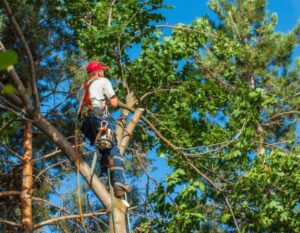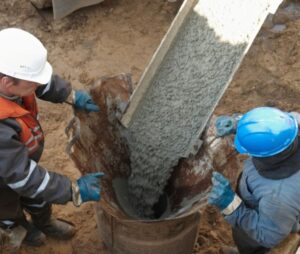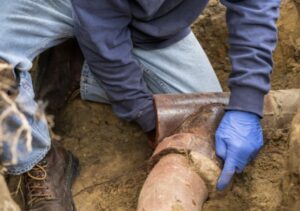The Eco-Friendly Revolution: Exploring the World of Cassava Biodegradable Plastic

In today’s world, the issue of plastic pollution has reached critical levels, prompting a global call for sustainable alternatives. Among these alternatives stands cassava biodegradable plastic, offering a promising solution to the environmental challenges posed by traditional plastics. In this blog post, we will delve into the fascinating world of cassava biodegradable plastic, exploring its origins, production process, benefits, challenges, and future prospects. Join us on a journey towards a greener, more sustainable future as we unravel the wonders of cassava biodegradable plastic and its potential to revolutionize the way we approach plastic consumption and disposal.
Understanding Cassava Biodegradable Plastic
Cassava biodegradable plastic, also known as cassava starch-based bioplastic, is a revolutionary material that offers a sustainable alternative to traditional plastics. Derived from the cassava root, a tropical tuber widely cultivated for its starchy properties, cassava biodegradable plastic is garnering attention for its eco-friendly characteristics. This section will provide an in-depth understanding of cassava biodegradable plastic, including its composition, properties, and applications. Let’s explore the fascinating world of this innovative material and its potential to reshape the future of plastic production and consumption.
Production Process of Cassava Biodegradable Plastic
The production process of cassava biodegradable plastic involves several intricate steps, each contributing to the creation of a sustainable and eco-friendly material. This section will delve into the detailed process of transforming cassava roots into biodegradable plastic, highlighting the key stages and techniques involved. From harvesting the raw material to molding the final product, we will explore the journey of cassava biodegradable plastic from farm to finish. Join us as we unravel the fascinating production process behind this innovative solution to plastic pollution.
Benefits of Cassava Biodegradable Plastic
Cassava biodegradable plastic offers a multitude of benefits that make it a compelling alternative to traditional plastics. This section will explore the various advantages of cassava biodegradable plastic, highlighting its positive impact on the environment, economy, and society. From its renewable source material to its biodegradability and versatile applications, cassava biodegradable plastic presents a sustainable solution to the pressing challenges posed by plastic pollution. Join us as we uncover the numerous benefits of embracing cassava biodegradable plastic and its potential to create a cleaner, greener future for generations to come.
Understanding Cassava-Based Plastic Bags
Cassava-based plastic bags are crafted from cassava starch, a renewable and abundant resource found in tropical regions. Unlike conventional plastic bags, which are derived from non-renewable fossil fuels, cassava based plastic bags offer a sustainable alternative. The manufacturing process involves extracting starch from cassava roots, which is then processed into a biopolymer suitable for bag production.
Environmental Benefits
One of the most significant advantages of cassava-based plastic bags is their biodegradability. Traditional plastic bags can take hundreds of years to decompose, contributing to environmental pollution and endangering wildlife. In contrast, cassava-based bags break down naturally over time, reducing the burden on landfills and oceans.
Furthermore, the cultivation of cassava plants requires less water and energy compared to traditional plastic production, making it a more environmentally friendly option. By choosing cassava-based plastic bags, consumers can reduce their carbon footprint and support sustainable agricultural practices.
Versatility and Durability
Despite their eco-friendly composition, cassava-based plastic bags offer comparable durability to conventional plastic bags. They are resilient enough to withstand typical usage scenarios, including grocery shopping, storage, and transportation. Additionally, cassava-based bags can be customized to meet various size and thickness requirements, making them suitable for a wide range of applications.
Challenges and Future Outlook
While cassava biodegradable plastic holds tremendous promise as a sustainable alternative to conventional plastics, it also faces several challenges that must be addressed for widespread adoption. This section will discuss the existing challenges surrounding the production, scalability, cost-effectiveness, and disposal infrastructure of cassava biodegradable plastic. Additionally, we will explore potential solutions and advancements in research and technology that could overcome these obstacles and pave the way for a brighter future. Join us as we delve into the challenges and opportunities shaping the future outlook of cassava biodegradable plastic and its role in creating a more sustainable world.
Conclusion
In conclusion, cassava biodegradable plastic stands as a beacon of hope in the fight against plastic pollution, offering a sustainable alternative that aligns with our environmental goals. Throughout this journey, we’ve explored the intricacies of cassava biodegradable plastic, from its origins and production process to its myriad benefits and challenges. Despite the hurdles that lie ahead, the potential of cassava biodegradable plastic to revolutionize the plastics industry and mitigate the harmful effects of plastic pollution cannot be overstated. As we look to the future, let us embrace the promise of cassava biodegradable plastic and work together towards a cleaner, greener planet for generations to come. Join us in the quest for sustainability, one cassava biodegradable plastic at a time. For more information about Cassava Plastic Bag Manufacturer in Indonesia, please contact: Whatsapp/Mobile Phone : +62 811 1721 338 (Ms. Ratna), or: Email : [email protected].








